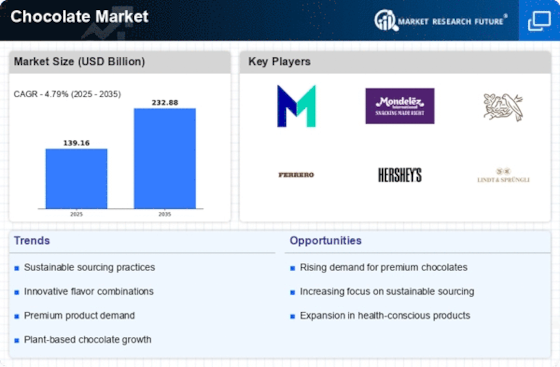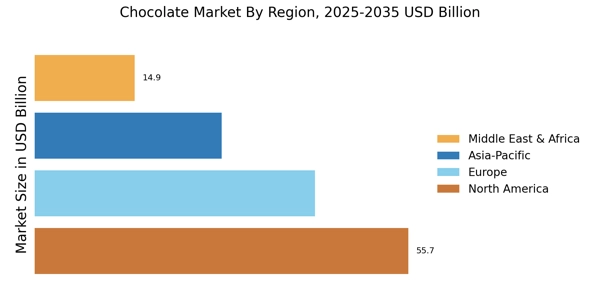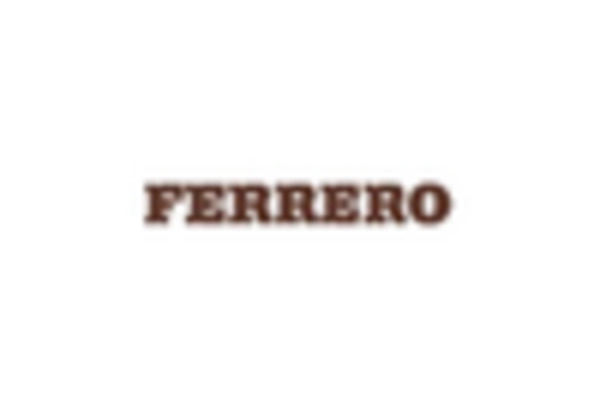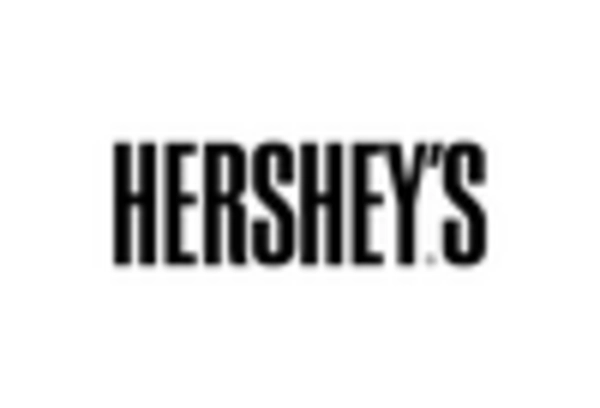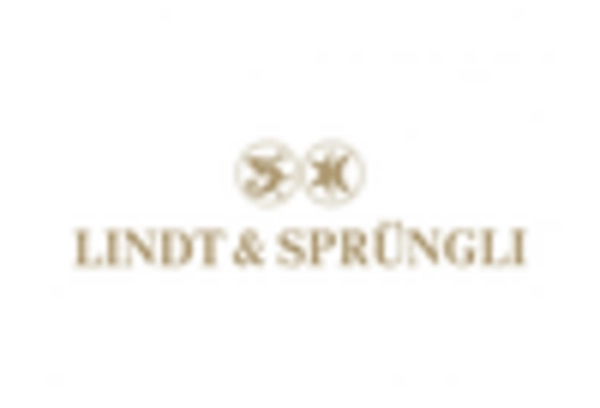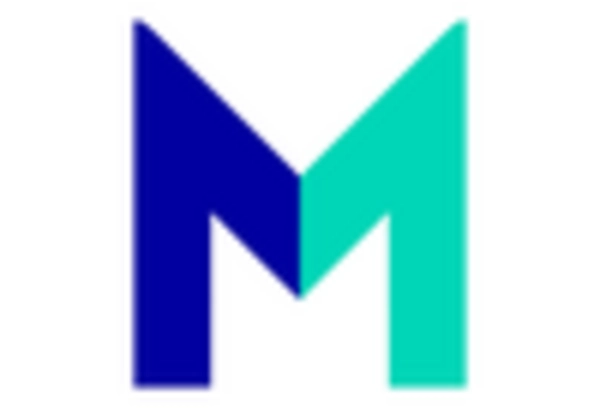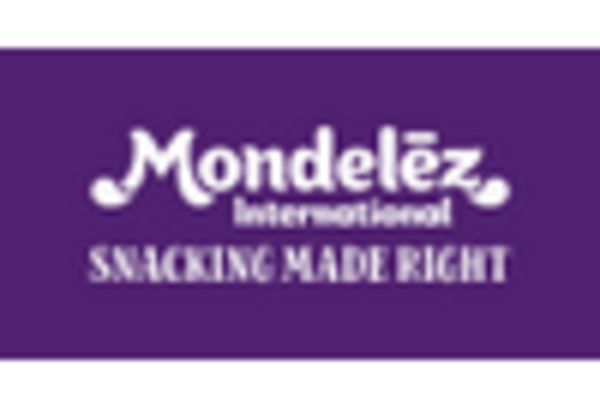E-commerce Growth
The chocolate Market is experiencing a transformative shift due to the rapid growth of e-commerce platforms. With the increasing prevalence of online shopping, consumers are now able to access a wider variety of chocolate products than ever before. Recent data suggests that online sales of chocolate have surged by over 20% in the past year, reflecting changing consumer habits. This trend is particularly pronounced among younger demographics, who favor the convenience of online purchasing. As e-commerce continues to expand, it presents both opportunities and challenges for traditional retailers within the Chocolate Market. Companies that effectively leverage online channels are likely to enhance their market reach and cater to the evolving preferences of consumers.
Health and Wellness Trends
The Chocolate Market is significantly influenced by the growing health and wellness trends that shape consumer choices. As individuals become more health-conscious, there is an increasing demand for chocolate products that offer functional benefits, such as added vitamins or superfoods. Market Research Future indicates that the segment of health-oriented chocolate products has grown by approximately 12% in recent years, highlighting a shift towards indulgence that does not compromise health. This trend encourages manufacturers to innovate and create products that align with health trends, such as low-sugar or high-protein chocolates. As the Chocolate Market adapts to these evolving consumer preferences, it is likely to see continued growth driven by the intersection of indulgence and wellness.
Sustainability Initiatives
Sustainability has emerged as a pivotal driver within the Chocolate Market, as consumers increasingly prioritize ethically sourced products. The demand for sustainable chocolate is reflected in the growing number of brands committing to fair trade practices and environmentally friendly sourcing methods. Recent statistics reveal that approximately 30% of consumers are willing to pay a premium for sustainably sourced chocolate, indicating a significant shift in purchasing behavior. This trend compels manufacturers to adopt sustainable practices, not only to meet consumer expectations but also to enhance brand loyalty. As the Chocolate Indutry embraces sustainability, it is poised for growth, with companies that prioritize ethical sourcing likely to gain a competitive edge in the marketplace.
Rising Demand for Dark Chocolate
The Chocolate Market experiences a notable shift towards dark chocolate, driven by increasing consumer awareness regarding health benefits. Dark chocolate, rich in antioxidants and lower in sugar, appeals to health-conscious individuals. Recent data indicates that the dark chocolate segment has seen a growth rate of approximately 8% annually, reflecting a broader trend towards healthier indulgences. This rising demand is not merely a fleeting trend; it suggests a fundamental change in consumer preferences, as more individuals seek products that align with their wellness goals. Consequently, manufacturers are adapting their offerings to include a wider variety of dark chocolate products, thereby enhancing their market presence. This shift is likely to continue, as the Chocolate Market evolves to meet the needs of a more health-oriented consumer base.
Innovations in Flavor and Texture
The Chocolate Market is currently witnessing a surge in innovative flavor and texture combinations, which captivates consumers and drives sales. Manufacturers are experimenting with unique ingredients such as spices, herbs, and exotic fruits, creating a diverse range of products that appeal to adventurous palates. This trend is supported by market data indicating that specialty chocolate products have increased their market share by approximately 15% over the past year. Such innovations not only attract new customers but also encourage repeat purchases from existing consumers seeking novel experiences. As the industry continues to explore unconventional flavor profiles, it is likely that the Chocolate Market will see sustained growth, driven by the desire for unique and memorable chocolate experiences.


